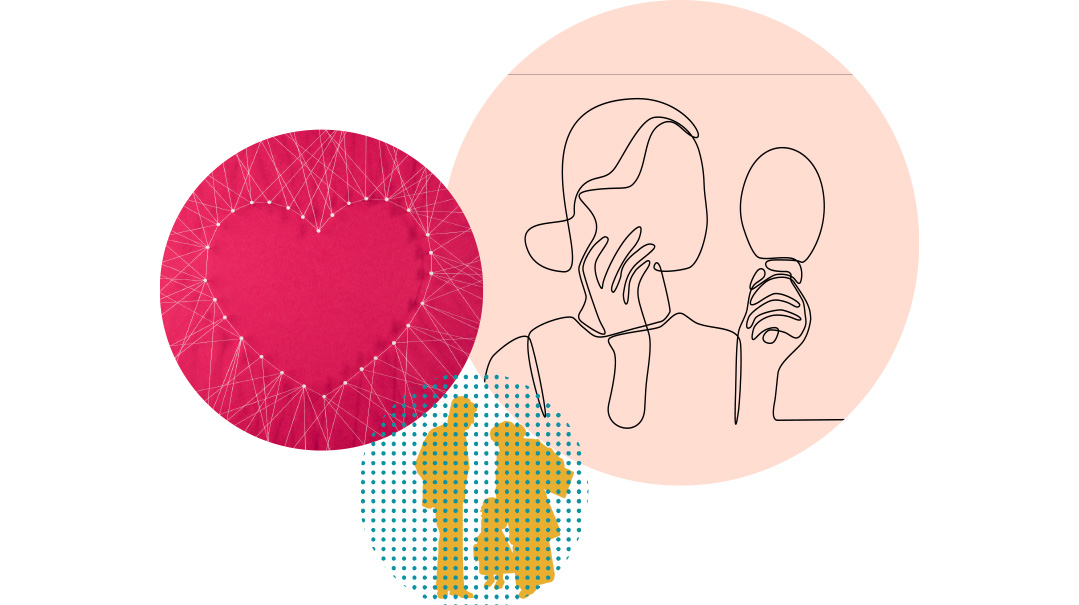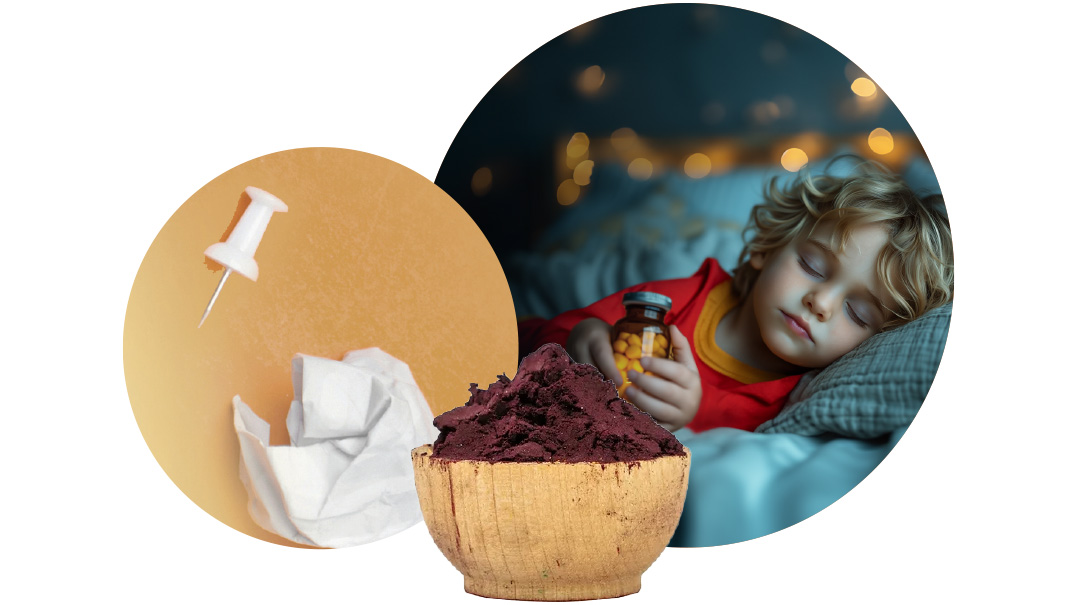Family First Inbox: Issue 833

“I think the more food becomes a topic of conversation in our homes, the more fixated our children become”

An Essential Message [Family Reflections / Issue 831]
I always find Sarah Chana Radcliffe’s articles smart and to the point. Her message in her last article “The Truth about Marriage” is crucial for all of us to internalize. Every chassan and kallah teacher should share it with their students. Every woman should read and reread it.
We’re a generation accustomed to a comfortable life, but as Mrs. Radcliffe said, life includes (big) disappointments, suffering, and deprivation, all planned by Hashem for our benefit.
Sarah Chana, I admire your courage in writing, “The option of divorce should be put in its rightful place (a rare and tragic necessity).” I’m not a professional or an expert on shalom bayis issues, I’m just a little old lady. But I hope I’ve acquired some wisdom through my years. And I’ve made an observation: women who have difficult husbands, yet despite their many challenges quietly forge ahead to create a stable and functional home — using chochmah and diplomacy — are blessed with special siyata d’Shmaya in raising their children.
Hopefully, your readers will use this article to gain wisdom and insight, and not, chas v’shalom, to judge women in difficult circumstances.
F.B.
Monsey, NY
Clipped and Saved [Family Reflections / Issue 831]
Sarah Chana Radcliffe’s article about marriage being a challenge was so perfectly spot-on! As a seminary teacher and kallah teacher, I’m regularly exposed to this unrealistic vision that a happy marriage comes easily, and talk until I’m blue in the face trying to express what Mrs. Radcliffe explained so eloquently. I’ve clipped and saved this and will be sharing it with all of my students from now on.
Molly Katz
Ramat Beit Shemesh
What’s It Got to Do with Chassidim? [Inbox / Issue 831]
I was pretty offended to read M.E. Teitelbaum’s response to the article about difficulty davening. I’m a chassidish woman. I work full-time to afford my life and so my husband can be in kollel. I run my house like any other woman, cooking, cleaning, and working. Most days, I don’t feel like “Superwoman.”
Davening is a challenge for women from every walk of life. Very often it’s not about finding the 15 minutes or half hour. The struggle for connection is genuine and affects many of us, and I can only hope and daven that everyone finds the capacity for tefillah.
Chaya Friedman
Modeling Is the Way to Go [Inbox / Issue 831]
Dear Name Withheld, who wrote the inbox letter “Don’t Say A Word,” saying, “At this age, the only things kids need to know is that fruits and vegetables are very healthy, anything with sugar is for Shabbos only, and the rest of the foods are for meal times.”
When I first read this sentence, I thought it normal, about things we all know. Fruits, vegetables, proteins are good. Everything else is bad. When I looked back at the sentence, however, I realized that it’s actually really problematic. Eating disorders begin by categorizing and restricting food. Having children grow up in an environment where food is labeled and specified as “good” or “bad” is a recipe for the beginning of a Binge Eating Disorder. Binges occur when foods are intensely restricted. Therefore, when a child has been trained to avoid certain foods for fear of being subject to the wrath of their mother, they will avoid the food at home. When they’re without their mother’s supervision, they will feel as though this is their singular opportunity to eat whatever they want. They will cram as much food as they can until they get sick.
Someone recently shared with me an experience she had. She was making a birthday party for her daughter, and one girl kept returning for many pieces of cake, in addition to eating more and more candy. These incidents, I believe, occur when we restrict our children too much. If we tell them that sugar is only for Shabbos, what will happen when Shabbos comes? They will believe that it is the only day they are entitled to sugar and they will overeat. We’re training them to have certain associations that aren’t setting them up for success.
The solution, I believe, is to model the right way to eat. The foods our children grow up with in the house is what becomes normal for them. When we have delicious, balanced lunch-bags and dinner, it becomes our children’s norm, and they grow to expect it. My mother always said, “If you cut it, they’ll eat it.” She always had cut fresh fruit and vegetables on the table next to a bowl of chips. To us, they were equal. Neither was better than the other.
I think the more food becomes a topic of conversation in our homes, the more fixated our children become. Why should we subject them to this? The more positive modeling we present them, the more they will catch on. If we show them that food takes up our headspace, how can we expect them to move on from it?
Name Withheld
Jewish Companies Run Tiny [Inbox / Issue 830]
As I read the Inbox letter about the tiny sizes, I cradled my four-month-old baby in the size nine-month top and 12-month leggings that fit her so nice and snug. I know that for Yom Tov, my nine-year-old will be in a size 12 Shabbos dress, and my tall 11-year-old will have to try the size 14 and 16 so her knees will be covered.
When this baby neared three months of age, I happily got out the beautiful velour outfit she’d received as a gift in the size 3-6 months. I tried it on and almost cried. It was far too small and I couldn’t close the snaps. I’d missed my chance, and she wouldn’t be able to wear this gorgeous piece at all!
When I told a friend about this, her reply was, “But you should have known. All the Jewish companies run tiny. And X and Y brands? If you have a chubby baby, you don’t even buy them!”
A light went on. “Oh, you mean it’s like with the Z brand of tights? Always buy two ages up?”
“Of course!”
People who produce these brands, what’s up with you? (And yes, I know it’s not all the Jewish clothing brands, some are mostly normally sized). Maybe stop “kaaging” on the material and playing these games. Just tell your manufacturers to use normal sizing charts. My baby isn’t taking this personally at all, but some teenagers can’t bear to have to buy clothing with distorted labeling.
Hurting People Is a Sin.
R. G.
Learning to Love Overweight Me [The Conversation Continues / Issue 829]
I can just begin writing now, as it took me this long to overcome my initial feelings of numbness. Seeing a lot of my silent ache openly displayed in words led me to feel like a drowning child being pushed up to safety.
I’m all of 16 (and a half), and I’ve seen, heard, and believed stuff a person of 120 shouldn’t have: the comments, looks, whispers, shouts, threats…. It’s sad when it’s society doing it, yet when it’s parents (and grandparents), then what do you think happens? It’s a very miserable and chubby child indeed.
I grew up with the knowledge that my weight puts me at immediate risk for a heart attack, stroke, diabetes, and death. I had a lot of anxiety.
I had gastric sleeve surgery at a tender age. It was a choiceless choice, considering the ramifications had I not. I can’t say I regret it, but eventually I gained some back, and that’s because my relationship with food is simply warped.
So to all the mommies and tatties out there, who have delicious, healthy, and chubby children, although you think you’re doing your child a favor by restricting them, or making fun of them so they’ll want to eat healthily, know you’re not! Instead, let children be children, and when they will want to diet, they will have a much healthier relationship with food. Love them, and cherish them, believe in them… did I mention love them?
A big shout-out to all the people in my life who have looked past my surrounding layers and met the real me, crying inside. You know who you are!
Tatty and Mommy, Zeidy and Elter Zeidy, teachers, counselors, some friends, strangers, yentas, kids screaming from the school bus, I beg you to STOP! PLEASE? WON’T YOU?
For three days I didn’t eat. I starved until my tongue turned white to shush yours. I could’ve died! Why didn’t I? Could’ve, would’ve, but glad I didn’t! I’ll have the last say. I’m stronger and bigger than all of you! But can all the other kids in pain be as resilient as me? Will they follow my battle cry or succumb to your emotional torture?
In today’s society, you have to be almost nonexistent in size to deserve to exist. Is it worth the struggle? If I get here, will I be happy?
I see my salvation on the horizon. Slowly I’m learning how to love myself, to treat myself with respect, to eat healthily because I care about me. I can also buy nice clothing even though I’m not a size two! My salvation wasn’t in the form of me waking up one sunny day to discover myself in a thin body, rather it was to discover my beauty, my power, in the overweight me.
I reached my goal. Let the scale protest otherwise!
The world has tricked you into thinking that beauty is a tangible thing.
But my dear, the body is only a shell, its role is to carry your limbs and hold your soul.
Thank you, Miriam (Pascal) Cohen. You should be gebentshd!
A Girl Who Has Reached Her Goal
Davening Is Self-Care [Care to Connect / Issue 828]
I’ve been following the conversation about davening with interest, as I was also in the same place as the original writer. As soon as I had kids, I didn’t even want to daven, even though I used to daven regularly and fervently throughout my many years of singlehood.
I was very unhappy about this “blocked” feeling, and I felt super guilty whenever I had a few minutes, yet chose to do anything but daven. Things changed during the Covid lockdown. People were dying left and right, and there was a lot of fear. Even if one held that women are only obligated to daven during an eis tzarah, according to the Ramban, this time definitely qualified. I was determined to begin davening during this scary time.
As I began to daven again, I realized two things. First, I really needed my husband to understand that davening was important to me. Once I communicated this, he agreed to free me up from dealing with the kids during the ten minutes I allotted for davening. (We were all home on lockdown, remember?) His support in this way made me feel more relaxed about it, since I knew I wouldn’t be interrupted, and this encouraged me to continue.
I think this kind of communication can be helpful for those whose husbands are home when they want to daven. If your husband knows how important this is to you, he may agree to “hold down the fort” for a few minutes so you can get in your davening.
The next thing I realized is that davening is a form of self-care. We all have physical and emotional needs that most people recognize as needing nurturing, but few speak much about spiritual needs. For many of us, davening is a spiritual need that shouldn’t be repressed. I didn’t even realize this until I started davening again. I can’t say my davening and kavanah are stellar, but with the time carved out for it, I can occasionally access meaning and emotion in my connection to Hashem.
I hope this insight can help others in their journeys.
Been There, NJ
(Originally featured in Family First, Issue 833)
Oops! We could not locate your form.







